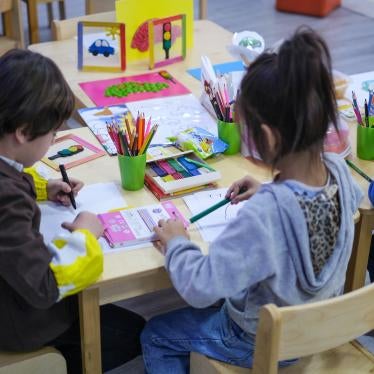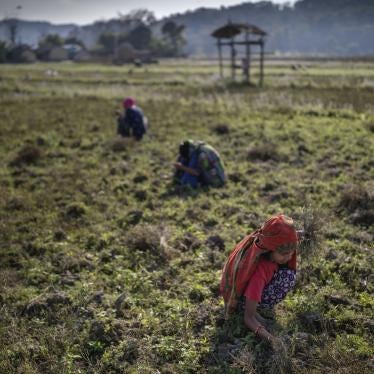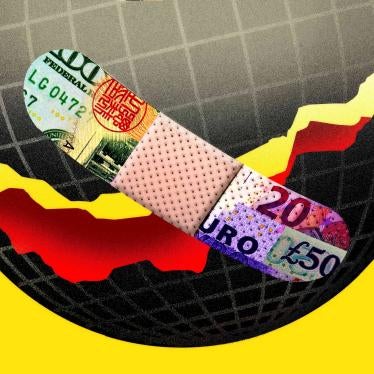It’s time to change the metric by which much of the world traditionally measures economic wellbeing: gross domestic product (GDP). The drive for steadily higher GDP growth is fueling environmental disasters and worsening the lives of billions of people.
Instead of giving attention to GDP, governments should focus on developing a human rights economy which builds an economic system that enables all people to realize their human rights on a livable planet.
Fundamentally changing our economic system seems like an insurmountable challenge. But there are concrete actions states and international institutions can take to build an economic system that achieves progress for all, not just some, and safeguards our environment.
The missing ingredient from the international system is human rights. A human rights economy is experienced on a local level – by all people enjoying their rights like quality public services, universal social security systems, and fair and living wages and safe working conditions, not to mention a livable planet – but it is enabled on the global level by rewriting the rules of the global economic system to more equitably distribute global resources between countries.
Taking steps on a path towards a human rights economy was the theme of a July 2 event of the United Nations Human Rights Council. Governments from four regions – Malaysia, The Gambia, Chile, Panama, and Spain – joined with the Office of the High Commissioner for Human Rights (OHCHR) and eight civil society organizations that work on economic justice, including Human Rights Watch, in the event on the sidelines of a UN Human Rights Council (HRC) session. It built on similar discussions that took place at the HRC session in October 2023 and at a HRC intersessional meeting in January 2024, reflecting momentum for change. Around 80 people attended, including representatives from 25 states.
At the July 2 session, the inadequacies of GDP alone as a measure for how countries and citizens are faring was a common theme. In her opening remarks, Malaysia’s ambassador to the UN, Dato’ Nadzirah Osman, said her country seeks to “collaborate with like-minded countries and international organisations to promote a fairer and sustainable global economic order, based on the principles of human rights. Malaysia is committed to playing its part in this transformation. By fostering an economy that values well-being over mere GDP growth, we can build a more just, equitable and sustainable world for all.”
Olivier de Schutter, UN Special Rapporteur on extreme poverty and human rights, struck similar notes. “For decades, GDP growth was the dominant approach for eradicating poverty, but it never fulfilled its promise and devastated our planet,” he said. "One concrete step that can be taken to achieve a ‘human rights economy’ is to replace GDP and a focus on growth with measures of progress grounded in human rights: meeting the challenges of the climate crisis, addressing inequalities, and eradicating poverty.”
Surya Deva, UN Special Rapporteur on the right to development, told the gathering that the current economic development model has serious deficits, as poverty isn’t being reduced enough and inequality is rising: the benefits of economic growth are not getting shared equitably. He asserted that the right to a clean, healthy, and sustainable environment is as important as the right to development. Also, “there is not enough or meaningful participation of people in development policies, plans and projects, leading to social conflicts and attacks against human rights defenders. In view of these development deficits, we should look for a new model of economic development. I am calling it a planet-centered participatory model of development.”
Todd Howland, Chief of the Development, Economic, and Social Rights Branch at OHCHR, said that people hear the economy is growing, “but they see their opportunities, education, health and well-being negatively impacted. They see some doing well and many doing not so well. A human rights economy puts human rights back in the policy equation to ensure all benefit from the economy.”










